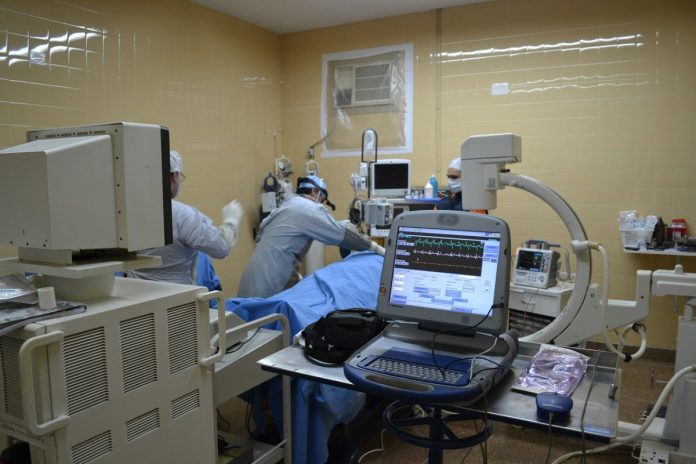UEHP President Dr Paul Garassus writes on the importance of investing in smart private hospitals for sustainable healthcare
In an historical moment in which uncertainty is becoming a regular in our agenda, with recent elections and political changes worldwide, social policies and healthcare systems could be shocked by new constraints and passively suffer from hard decisions imposed by the EU or Member States. The European Union of Private Hospitals (UEHP) is on the frontline of the major battles Europe is facing, challenging the necessary evolution of healthcare systems, including in the field of innovative technology. One major topic is that of social protection and sustainability of healthcare systems, which now depend on performance. Therefore, we are developing the concept of smart hospitals for the future. As innovative partner of changes, we consider that four goals can be achieved: patient information, professional collaboration, benchmarking by regulators, and investor strategy support.
A smart hospital is first and foremost dedicated to a more informed patient. To ensure equal access to quality treatments in all countries for all European citizens, information is the first major point. Free choice of treatment for patients, including the best access without waiting times, requires new IT tools explaining hospital activities, references and quality outcomes. We can give the example in Germany of the “Qualitätkliniken” website supported by BDPK, Initiatives by “Clinique Pasteur” in Toulouse and by his manager Dominique Pon. Patient mobility is an opportunity, and we have to manage this challenge of a competitive offer to reduce waiting lists. UEHP is involved in long-term cooperation with patients associations, healthcare experts and policy makers. May we limit the risk to “see progress coupled with growing health inequalities”.
Hospitals are centres of expertise
A second aspect is that the future of hospitals will integrate new technologies, cooperation between actors, and a more confident relationship between professionals and industries. The pharmaceutical and medical device industries develop fantastic innovative treatments or tools. Robotic surgery is now available, as well as new drugs for cancer treatment, day care units are more common, and all trends orient to shorter stays in hospital.
But hospitals are often the centre of expertise now and for the future, if it is a communication hospital. We have to fight fee barriers and tariff decreases to adapt our service to modern efficiency. A connected hospital, or a “smart hospital”, just like a smartphone, could be the relevant image. Nevertheless, “The ways of paying providers are often poorly aligned with health system priorities”. A new deal for cooperation with healthcare sector industries is required, including the full involvement of all professionals to assess a global successful performance. However, barriers remain to be broken.
The third point is not to suffer from hard regulation. We have to be a partner of change, helping regulatory states to adapt the offer to their needs. All UEHP members prepare for this major challenge in order to transform uncertainty into achievements and progress. Many UEHP hospitals are already exploiting the potential of big data, wearables, and new technologies, as well as investing not only in innovative projects, but also in the training of their highly-qualified workforce. Big data from national and EU authorities will help determine relevant solutions, according to a new policy including outcome indicators and incentives fees. Without scientific information and measurement, no management success will be obtained. We ask to be solicited as experts to define the reforms without any discrimination between providers. A fair competition will assess performance and sustainability of healthcare systems.
Strategically invest for sustainable healthcare
The final aspect is not often studied by academics: Strategic investment in healthcare. But major information will follow the EU report on “Investing in Health” (EXPH), published by the European Commission’s DG SANTE. As stakeholders of European working groups on quality, patient safety, eHealth, and strategic investment, UEHP expresses the position of private hospitals ready to undertake the next IT revolution. UEHP is an active partner of change, working on new financing rules, integrating public and private insurances cooperation, and hospital reforms. New fields will be explored for prevention, education and training, as well as professional cooperation. But efficiency remains our major goal to offer the right service “on time” to an informed patient. Financial aspects must be cleared, including public financing by national government or European programmes. We can explain what the strategy of private investment dedicated to hospitals is, conditioning the future global performance and the best way of connecting hospitals. The recent mergers in European hospital groups need attention, demonstrating private talent and expressing a new European management dimension (examples: Quiron in Spain bought by Helios Germany, Ramsay buying Générale de Santé in France).
We have to effectively promote the modernisation of healthcare. UEHP accepts the challenge of performance for the next generation of hospitals; hospitals connected with patients and professionals, accessible for quality of service without delay. Despite “difficulties in measuring the impact of the crisis on health systems” (WHO), we know the major impact of economics on healthcare delivery. Sustainability of social systems depends now and over coming years on the management of innovative performances, certainly with the greatest implication of the private sector, in a positive competition to offer the best service, following performance engagement.
We support actions to innovative hospital management. UEHP organises working sessions for all Member States recently in Italy and Bulgaria, meeting MEPs and Ministries to be connected with health policy reforms. A proactive evolution of healthcare systems will be European and not only national, each experience being useful for all. We are concerned with the implementation of quality standards, as financial incentives including outcome for positive reforms. The key to success is being actors of change. Long live smart hospitals.
Ilaria Giannico
Secretary General
Please note: this is a commercial profile











